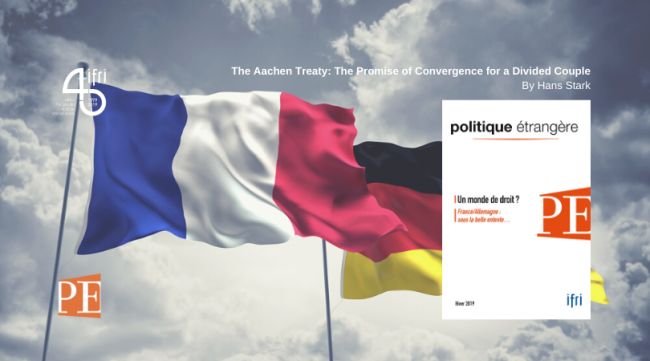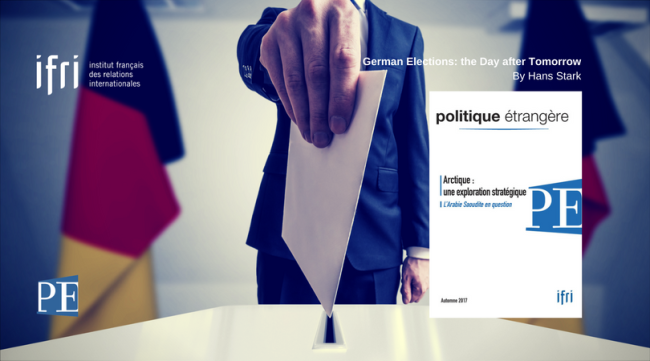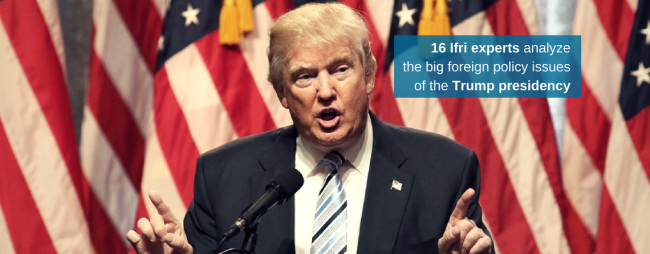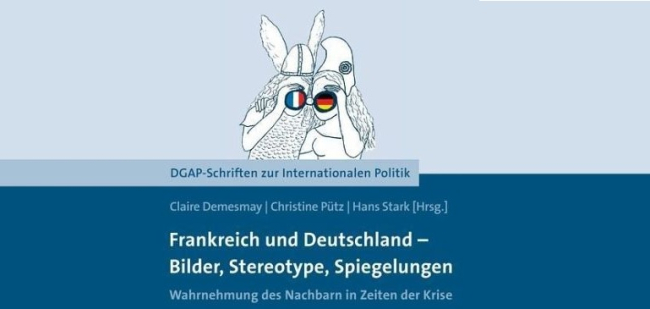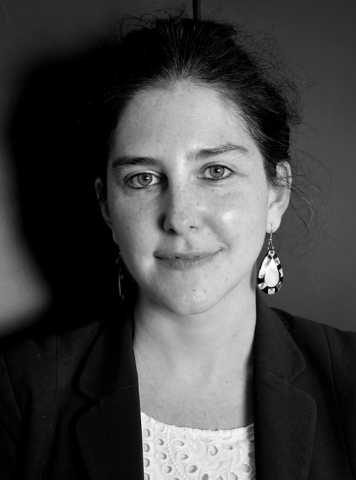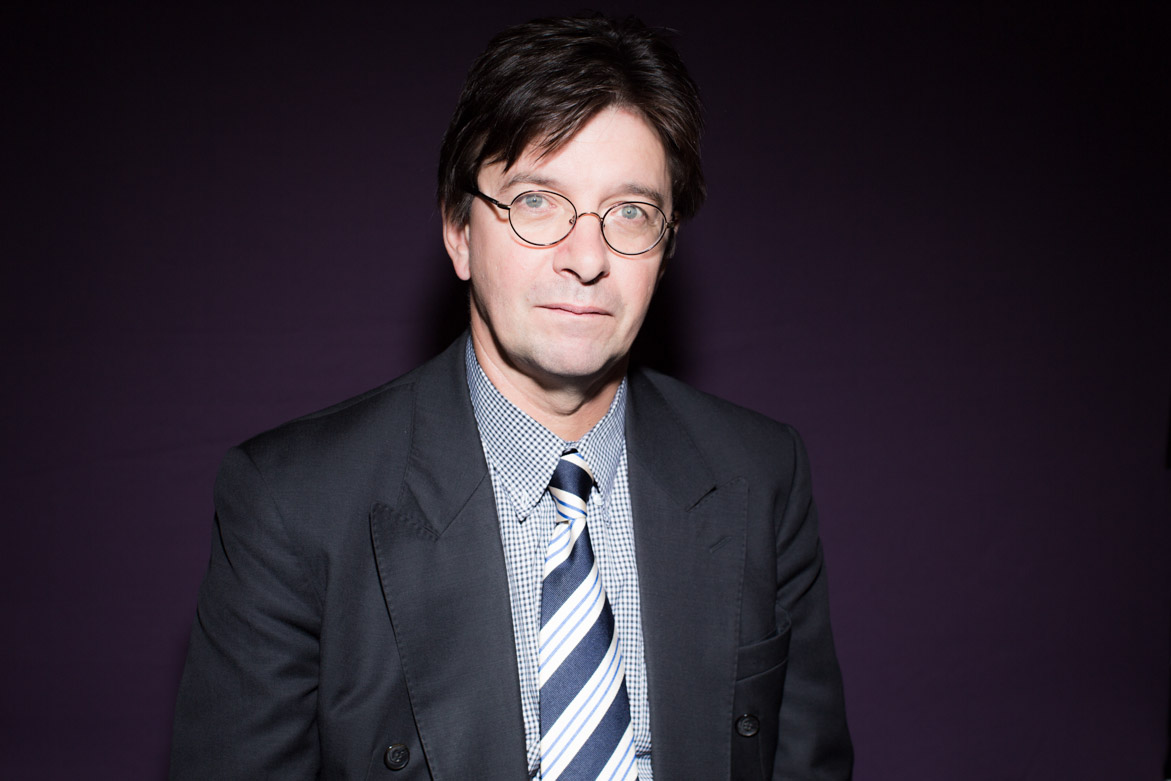
Prénom de l'expert
Hans
Nom de l'expert
STARK
Advisor, Study Committee on French-German Relations (Cerfa), Ifri
Research Areas:
- Contemporary Germany: Domestic and foreign policy
- French-German relations: Questions of security, European construction
- European integration: History of European Integration, Common Foreign and Security Policy

The Study Committee on Franco-German Relations (Cerfa)
View moreHans Stark graduated from the Institut d’études politiques de Paris (SciencesPo) in 1987, majoring in International Relations and achieving a Diplôme d’études approfondies (DEA) in Soviet and Eastern European Studies in 1990. He holds a PhD in political sciences from the Panthéon-Sorbonne University (2001) that focused on German European politics. In 2011 he obtained his habilitation at the University of Lille 3 in German Studies.
Since 1991 Hans Stark has been Secretary General of the Study Committee on French-German Relations (Cerfa) at the French Institute for International Relations (ifri) where his main interests are German foreign politics and German European politics. At the same time he teaches at University, first as lecturer at Sciences-Po (since 2002), then as Senior lecturer at the University Paris 3 Sorbonne Nouvelle (2005-2012). In 2012 he was appointed Professor of Contemporary German Civilisation at the University of Paris-Sorbonne.
He is part of the editorial board of the periodicals Politique étrangère and Allemagne d’aujourd’hui and member of the research laboratory SIRICE of the Sorbonne and of the advisory committee at the Genshagen Foundation.
See more











